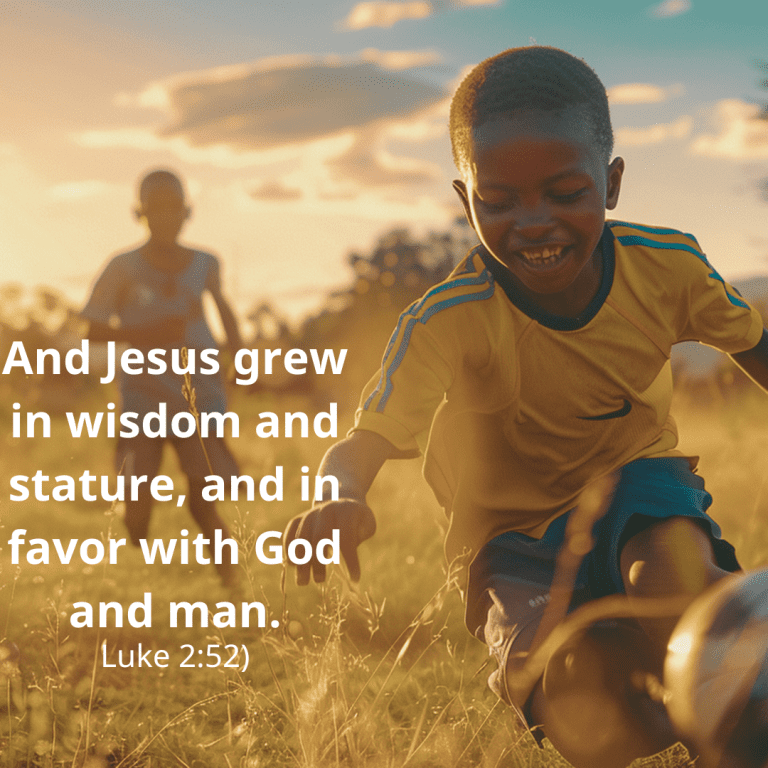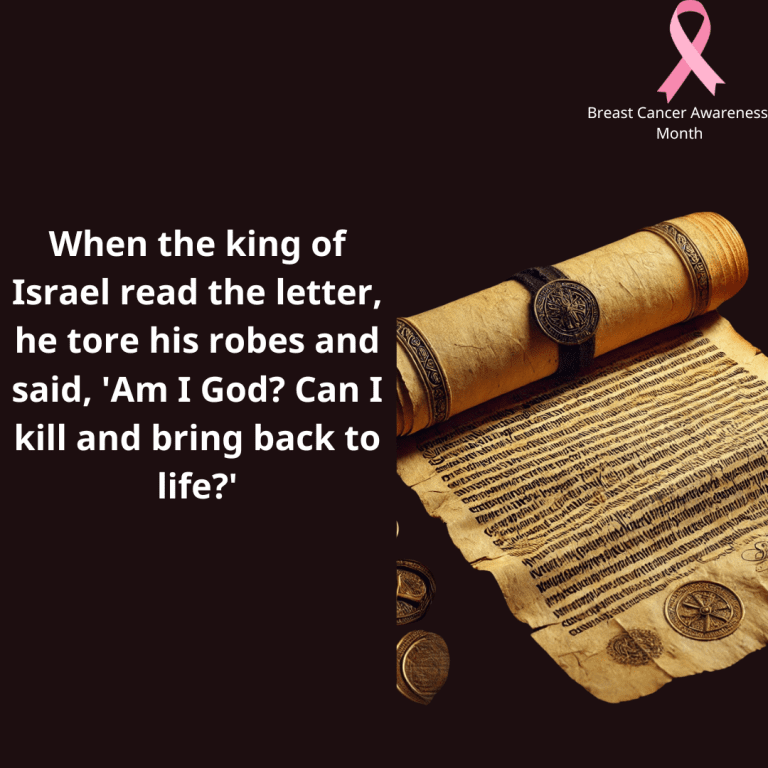The Preaching of John the Baptist
(Matthew 3.1-12Luke 3.1-18John 1.19-28)1 This is the good news about Jesus Christ, the Son of God. 2 It began just as God had said in the book written by Isaiah the prophet,
“I am sending my messenger
to get the way ready
for you.
3 In the desert
someone is shouting,
‘Get the road ready
for the Lord!
Make a straight path
for him.’ ”
4 So John the Baptist showed up in the desert and told everyone, “Turn back to God and be baptized! Then your sins will be forgiven.”
5 From all Judea and Jerusalem crowds of people went to John. They told how sorry they were for their sins, and he baptized them in the Jordan River.
6 John wore clothes made of camel's hair. He had a leather strap around his waist and ate grasshoppers and wild honey.
7 John also told the people, “Someone more powerful is going to come. And I am not good enough even to stoop down and untie his sandals. 8 I baptize you with water, but he will baptize you with the Holy Spirit!”
The Baptism of Jesus
(Matthew 3.13-17Luke 3.21Luke 22)
9 About that time Jesus came from Nazareth in Galilee, and John baptized him in the Jordan River. 10 As soon as Jesus came out of the water, he saw the sky open and the Holy Spirit coming down to him like a dove. 11 A voice from heaven said, “You are my own dear Son, and I am pleased with you.”
Jesus and Satan
(Matthew 4.1-11Luke 4.1-13)12 At once God's Spirit made Jesus go into the desert. 13 He stayed there for 40 days while Satan tested him. Jesus was with the wild animals, but angels took care of him.
Jesus Begins His Work
(Matthew 4.12-17Luke 4.14Luke 15)14 After John was arrested, Jesus went to Galilee and told the good news that comes from God. 15 He said, “The time has come! God's kingdom will soon be here. Turn back to God and believe the good news!”
Jesus Chooses Four Fishermen
(Matthew 4.18-22Luke 5.1-11)16 As Jesus was walking along the shore of Lake Galilee, he saw Simon and his brother Andrew. They were fishermen and were casting their nets into the lake. 17 Jesus said to them, “Follow me! I will teach you how to bring in people instead of fish.” 18 Right then the two brothers dropped their nets and went with him.
19 Jesus walked on and soon saw James and John, the sons of Zebedee. They were in a boat, mending their nets. 20 At once Jesus asked them to come with him. They left their father in the boat with the hired workers and went with him.
A Man with an Evil Spirit
(Luke 4.31-37)21 Jesus and his disciples went to the town of Capernaum. Then on the next Sabbath he went into the synagogue and started teaching. 22 Everyone was amazed at his teaching. He taught with authority, and not like the teachers of the Law of Moses. 23 Suddenly a man with an evil spirit in him entered the synagogue and yelled, 24 “Jesus from Nazareth, what do you want with us? Have you come to destroy us? I know who you are! You are God's Holy One.”
25 Jesus told the evil spirit, “Be quiet and come out of the man!” 26 The spirit shook him. Then it gave a loud shout and left.
27 Everyone was completely surprised and kept saying to each other, “What is this? It must be some new kind of powerful teaching! Even the evil spirits obey him.” 28 News about Jesus quickly spread all over Galilee.
Jesus Heals Many People
(Matthew 8.14-17Luke 4.38-41)29 As soon as Jesus left the synagogue with James and John, they went home with Simon and Andrew. 30 When they got there, Jesus was told that Simon's mother-in-law was sick in bed with fever. 31 Jesus went to her. He took hold of her hand and helped her up. The fever left her, and she served them a meal.
32 That evening after sunset, all who were sick or had demons in them were brought to Jesus. 33 In fact, the whole town gathered around the door of the house. 34 Jesus healed all kinds of terrible diseases and forced out a lot of demons. But the demons knew who he was, and he did not let them speak.
35 Very early the next morning before daylight, Jesus got up and went to a place where he could be alone and pray. 36 Simon and the others started looking for him. 37 And when they found him, they said, “Everyone is looking for you!”
38 Jesus replied, “We must go to the nearby towns, so that I can tell the good news to those people. This is why I have come.” 39 Then Jesus went to their synagogues everywhere in Galilee, where he preached and forced out demons.
Jesus Heals a Man
(Matthew 8.1-4Luke 5.12-16)
40 A man with leprosy came to Jesus and knelt down. He begged, “You have the power to make me well, if only you wanted to.”
41 Jesus felt sorry for the man. So he put his hand on him and said, “I want to! Now you are well.” 42 At once the man's leprosy disappeared, and he was well.
43 After Jesus strictly warned the man, he sent him on his way. 44 He said, “Don't tell anyone about this. Just go and show the priest that you are well. Then take a gift to the temple as Moses commanded, and everyone will know that you have been healed.”
45 The man talked about it so much and told so many people, that Jesus could no longer go openly into a town. He had to stay away from the towns, but people still came to him from everywhere.
I. FASEL URRAGILIN.
1 Inī urrag Yesū Mesīh, nōrin tōdin, iṅǵīlnilin.
2 Nebī Isahian fāyisīm nagittā: “Adī, ai f-īdēr melaik aṅgā urrag innā, dawig indōro haddereyā.” 3 Hissi wē tāḱin falēlā: “Hadderan nōrin dawigā, sallahan sikke tannigā.” 4 Yūhannā falēlā gatisōǵa menon, ād-derson getāsiltōn tūbōǵana yā, sembī gafri-takkana yā. 5 Tal lo kaššan ādemirī kāmilī šādō, Yehūdīgūn irkiyūltōni Gudsi-gōni-ltōn; kāmil kaššan, tekkā gatisǵeyā naher Yurdānnā; girrōšan sembī tennigūgā. 6 Yūhannā udredon kitti wēkā kamrin fāgiltōni, mergedon mergirkā nawalatōni, kabon nabā-kōn sinnān assel-kōn. 7 Tar ād-dersa, īgatiḱḱon; Abāg annā ai lekin kogor wē fa-kīn, ai istahalmun dir tannin sērkā kussirīgā. 8 Ai ukkā gatisgis aman nogo lākēn tar fa-kir gatisǵin šogorti mugdis logo.
9 Wakti tannā Yesū Nasaretiltōn Gelīllā kir, gatistakkon Yuhannī lotōn Yurdān naharrā. 10 Sā tannā amannatōn falakir, nalon semām bāb kawafīka, šogorti sukkafikā hammām wen nagittā. 11 Hissi wē ukkirtakkon semāltōni: Ir an gallin ayin dollelin.
12 Mōlā šogorti takk īdiron falelā. 13 Tar falelā mena, nahār erbaingā gerribtakkon šaītān notōni; tar waheši dani dāron; melaikanḱi takkā āg-hidmisan.
14 Wīda Yūhannān hūntakkosīnnā, Yesū kir Ǵelīllā, ādderson nōrin mulkin iṅgīlkā. 15 Īgon: kāmiltakkōson semān, nōrin mulk mōlaṅon; tūban, āminōgan iṅgīl logo.
16 Wīda tar Ǵelīlin baherin kullā āg-tana grīdon-Samāṅǵōn, Andarāwis tan eṅga-kōṅ-gā naḱḱon, šebeke tennigā baharrā udred āginani, ter seyāda messan nogo. 17 Yesū īgatiḱḱon. Abāg annā kaḱḱan; ai fa-ukkā ādemirēn seyāda kaḱḱir ēnī. 18 Aballā ter šebeke tennigā mugōsa, abāg tannā faššan. 19 Tad dotōn kiddek tańa-ǵūa, Yakūb Sebedāyin tōttōn, Yuhannā tan eṅga kōn-gā naḱḱon, šebéke tennig sigir-rā haddrisan; aballā tāḱiǵon. 20 Tef fāb Sebedāyigā sigirrā hadamī dan mugōsa, falōšan abāg tannā.
21 Kafernāhumil noksan; tar gāmalā ǵūon geri-ǵálleā. 22 Ter hayyirdanōšan elim tan nogo, tar gudrá logo alimǵon nogo, kātebi tennigūn nagittā immun. 23 Ǵāma tennilā id wēi, šogorti niǵis wēkā kuṅkenoī, tāḱikenoī. 24 Īgon: Miṅg ū log firgī, Yesū Nasaretnīyi? Ir kíronam ūgā hassirǵālleyā; ai irbēr, ir minai iningā, wo nōrin gudes. 25 Yesū takkā adwirōsa īgon: Hussōse, tallatōn falōse! 26 Šogorti niǵis takkā guńikir, diyyikā wīga, falon. 27 Kāmil hayyirdaṅōǵa, wēr wēk issigaššan, īksan: In minā? minai in elim mirī? tar amrin gasbí logo šogorti niǵiskūga; ter takkā tāyinan.
28 Habar tan falon Ǵelīlin irki kāmillā. 29 Gā-maltōn fala, Samāṅ-gōn Andarāwis-kōn-in nōgiddo ǵūon, Yakūppōn Yuhannā-gōn dani. 30 Samānn eṅgan idēn kabkāb log oda fīyon, orod šedīttā. Aball īgatissan sibat tannā. 31 Mol tannā ǵū dumma kuttikiro̱n; eddi lo gāra dummon; kabkābiltōn weyo-son; kira, āg-hidmōǵon. 32 Megribiddo, mašan tor-ǵōsīn aharrā, eḱḱa kaššan odī diyyi-kōn meliktakkafī-ǵikūgōṅ-ga. 33 Irki kāmil ǵamaitakkon bābn urraglā. 34 Odī diyyikā nasserōǵon; orot tennī iḱḱir iḱḱirra; tar šādō falōson šaitān diyyikā, mugōǵakummun šai-tānīn bańákā, terīn takk irbiressīn siballā.
35 Feǵirrā, mašan gabillā tar kutta, šādō falōson. Yesū falē wēlā nogon tad do sallálleyā. 36 Betrus-kōn, tad dan dāḱikū-gōn mirra ǵūsan abāg tannā; 37 Elsan kēllā īgatissan: Wēndūtinī ikk āt-tebbayin. 38 Īgatiḱḱon: Irki mōlkūl fa-ǵūrō yā, mando-gōn dersīn siballā; inīn siball ai kis. 39 Ādderson gāma tennigūlā Ǵelīl kāmilin dōro, šaitānīg šād ōsōǵon.
40 Abras log od wēi tal lo kira, takkā fedda, seyi-dōsa, īgatiron: Ir on firgikanī, eska aigā nadifadēn. 41 Yesū simarkōson, eddi taṅgā īdir, taffōsa, īgatiron: Ai fa-awir irīn nadiftakkékā. 42 Tarīn iṅgā bańisīn kēllā, abras takkā mugōson, tar nadifaṅōson. 43 Yesū takkā ǵākiron takkā nogeyon. 44 Īgatiron: Adī, gattin wē log baṅatam; mandō ǵū, gasīs ikkā naleyā; karāma wēkā gōgge weyōsīn siballā, Mūsan bamsīn nagittā, šahāda tennis siballā. 45 Lākēn tari šādō Kira, diyyikā baṅon inmatōn, in habarkā šād ōsōson; inīn siballā tar eskumun kawa irkil gūnangā; šādō falēlā menon; ademirī agar kāmillatōni tad do yūsan.
